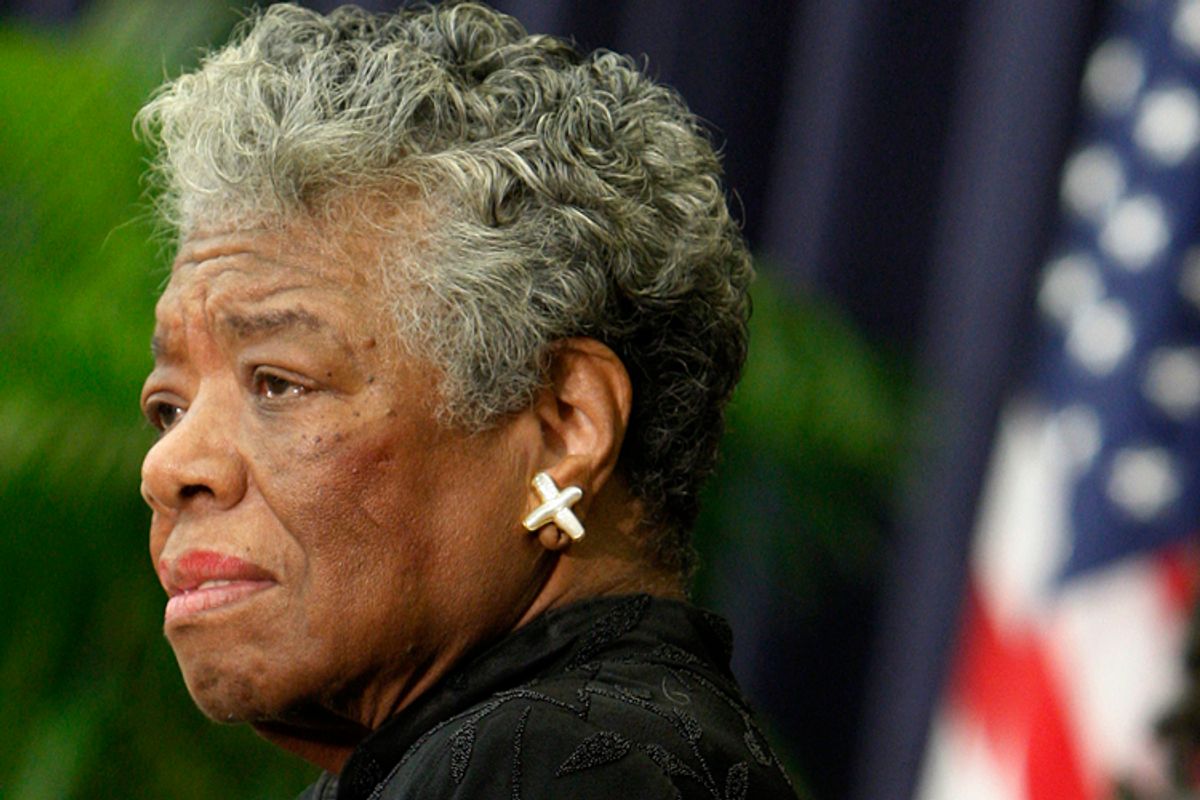Maya Angelou had a long career in publishing -- most notably the series of autobiographies that began with the 1969 publication of "I Know Why the Caged Bird Sings," but also including poetry.
But in the 1990s, Angelou put her talents as an actress and speaker to work as she began a second (or third, or fourth ...) career of sorts as a frequent presence on television and on the speakers' circuit. Part of the reason her death has moved so many today is the unusual degree to which Angelou brought her thinking and her writing into Americans' living rooms.
Angelou's work, as well as her remarkable theater-trained diction, first entered into many viewers' lives with her poem at the 1993 inauguration of President Bill Clinton. The poet's presence on the stage was a nod to the greater diversity the Clinton administration -- one whose cabinet was famously "designed to look like America" -- ushered in. And the substance of her poem, "On the Pulse of Morning," was a remarkable comment on the optimism of the moment, a time at which it seemed, for Clinton loyalists, as though anything were possible.
Angelou came to be a familiar presence in daytime television, thanks to appearances on "The Oprah Winfrey Show," including an on-air "pajama party" in which Angelou told Winfrey that one ought to trust what others tell us about themselves. It was a tableau remarkable both for the degree of sharp insight and for the setting -- both women were recumbent in bed, just chatting as friends. Angelou was perhaps too wise and distinguished to feel like a friend, but she felt familiar in the literal sense of the word.
Maya Angelou's appearance with Dave Chappelle on the series "Iconoclasts" in 2006 was another example of just how well Angelou shared the frame with an interviewer or fellow star. Chappelle, who'd just quit his Comedy Central series under much media scrutiny, sat quietly and deeply absorbed Angelou's story about teaching Tupac Shakur that he was important and had something to give. ("Each of us has the chance to be somebody," she said in summation.) It was a remarkable moment -- one well-chosen by Chappelle as one of his first post-Comedy Central appearances and one that speaks to Angelou's ability to connect on an intimate level.
Angelou came to greater repute in the 1990s, but it was hardly her first go-round in the public eye. One gets a sense of her preternatural poise in this 1982 interview with Merv Griffin, in which she jokes frankly about her appointment at Wake Forest ("even if I become senile, they still pay me!") and speaks about the "yet-to-be-United States."
Angelou held the public's attention and the camera's gaze late into her life, promoting her seventh autobiography just last year. In a video interview with Time, Angelou said, "I don't know how much longer I'll be around or how much longer I'll want to write about people I've known, times I've lived, and things I've done. But if there is time, I'll probably be writing when the lord says, 'Maya, it's time.'"



Shares